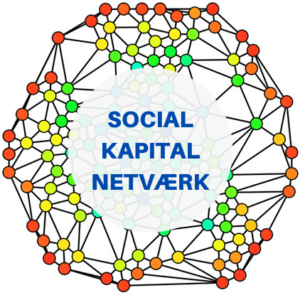
Revitalisation of our Network Group with Zoom, Mural and Excellent Facilitation
We finally got a meeting in the network again – and it was much needed! Throughout the network’s 7-year lifespan, all our
Failure is a very Real Option
Failure is an opportunity to learn, and in most innovation projects you will of course make mistakes. After all, this is part of why you are embarking on the project in the first place – not to deliberately make mistakes, but to investigate what works and what doesn’t work.
So you have to accept that risk of not succeeding is an essential feature of any innovation project. Reid Hoffman, one of the cofounders of LinkedIn has said this about the conditions of entrepreneurs (among which 98% fail):
A few years back, I facilitated an innovation seminar with the management team of a Danish accounting firm. At one point, I said to them “you should design your project portfolio in such a way that at least one third of the projects fail” – that comment did not go down very well :-)
Commiting or Experiencing Mistakes?
And I think I know the reason now: There is a huge difference between committing a mistake (due to negligence, lack of competences, lack of information etc.) and trying out something to se whether it works, and setting the goal so high that the likelihood of success is less than 100%, and hence (rather often) experiencing mistakes. If the likelihood of success of a project is 100%, id can hardly be called an innovation project, can it?
And yet, of course we want success, and of course we don’t like to conduct experiments that “fail” – but if you instead, as the famous Edison quote, can say something like “Whoa, now I now how not to do this, and I have become a little bit more informed about the direction of my next step!”
Failures are Lectures in Future Success
Watch this video from Khan Academy where Marc Ecko, Founder of Ecko Unlimited, tells a story about how being an entrepreneur is always a learning opportunity, and how understanding your failure can lead to success.
We can Help You Mitigate the Risk of Innovation
At FINN KOLLERUP as, we can help you to establish which at which risk level you want to operate, whether you embark on a FORTH Innovation Project, An Innovation Camp, or want to define your Innovation Culture.
What are your experiences with risk mitigation in your innovation projects – Is it a conscious choice or an embarrassing side effect?

We finally got a meeting in the network again – and it was much needed! Throughout the network’s 7-year lifespan, all our

The collaboration with Finn Kollerup was very rewarding for us. He inspired our participants to think about their everyday challenges in a new

Our task was to facilitate an efficient process and collect the results from a high-profile meeting. A special factor was that the schedule